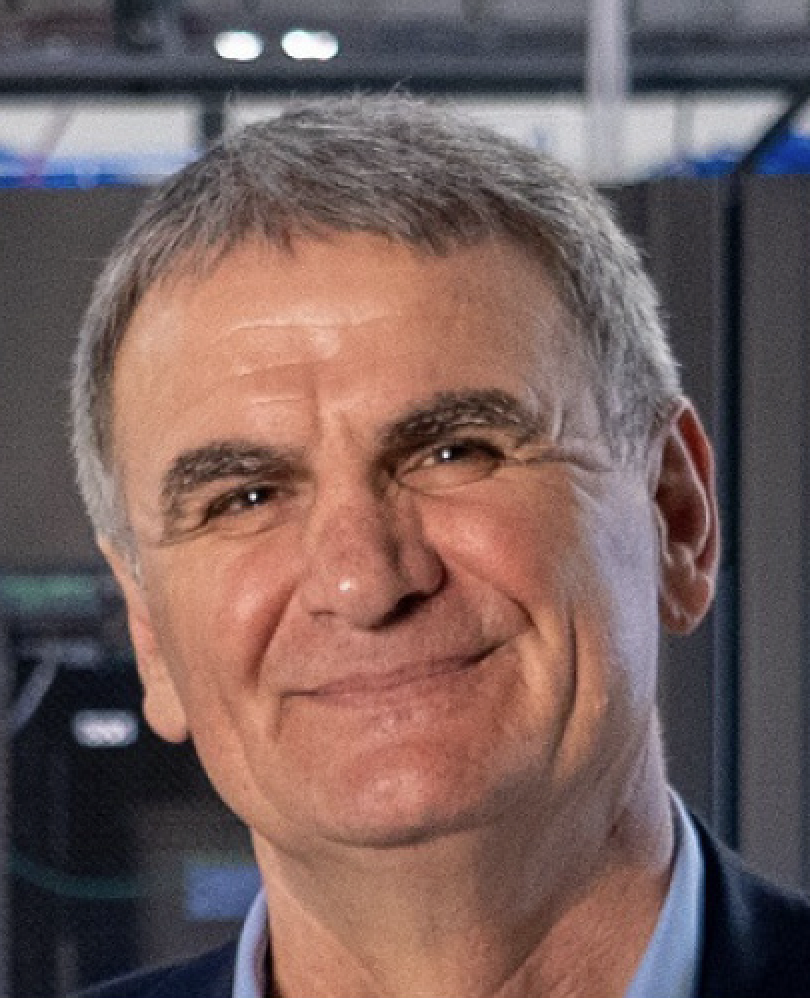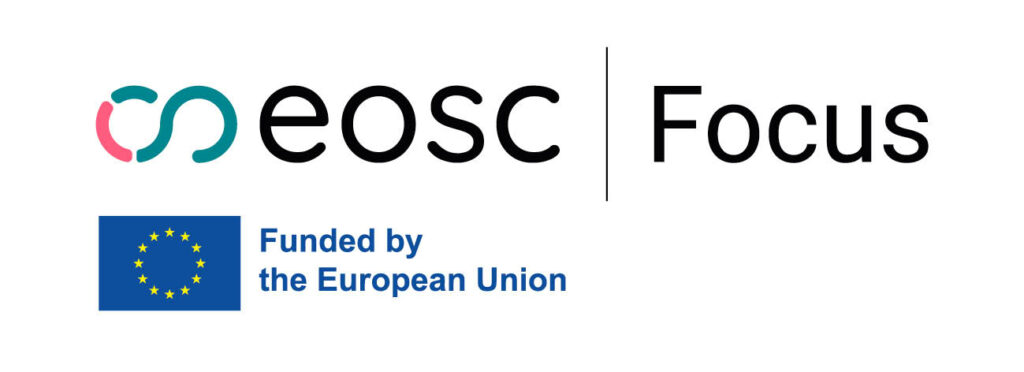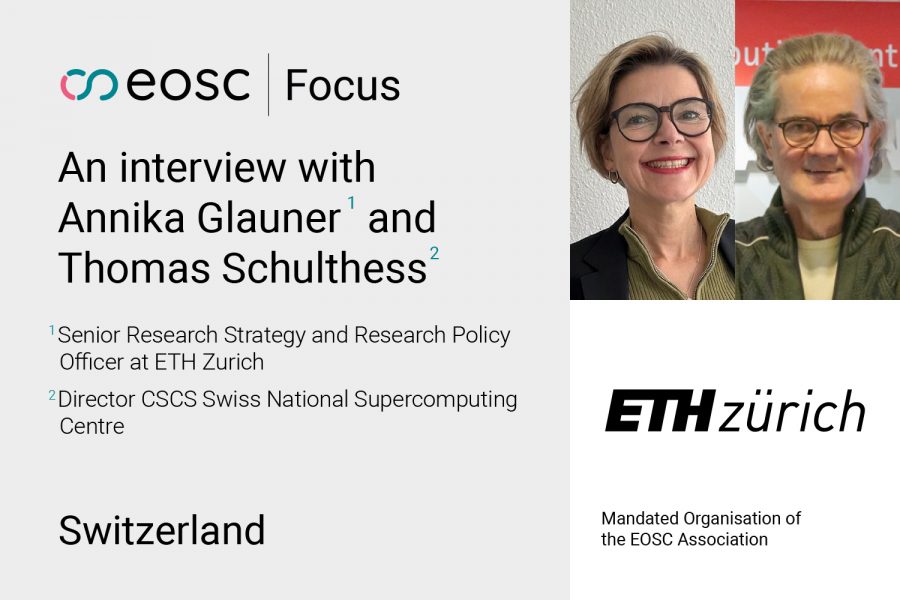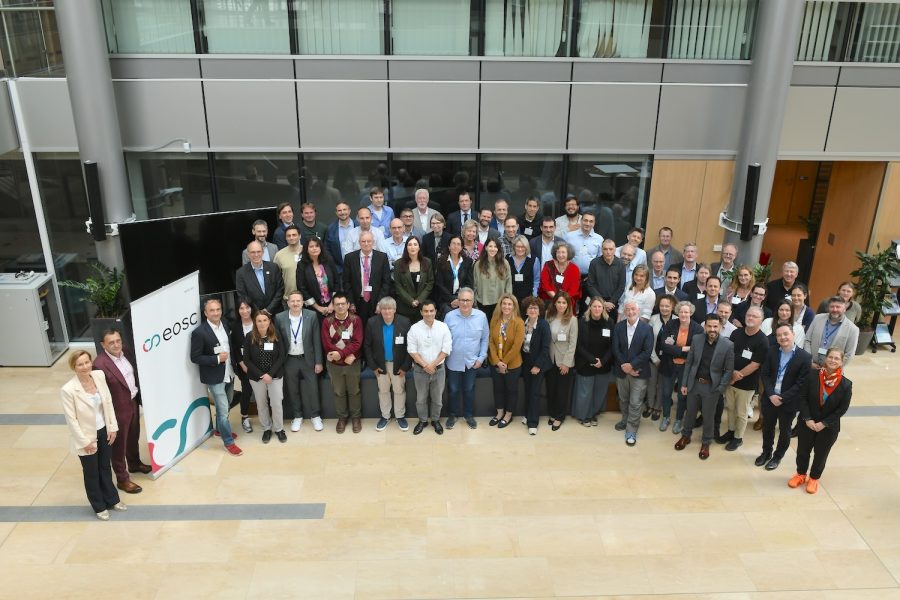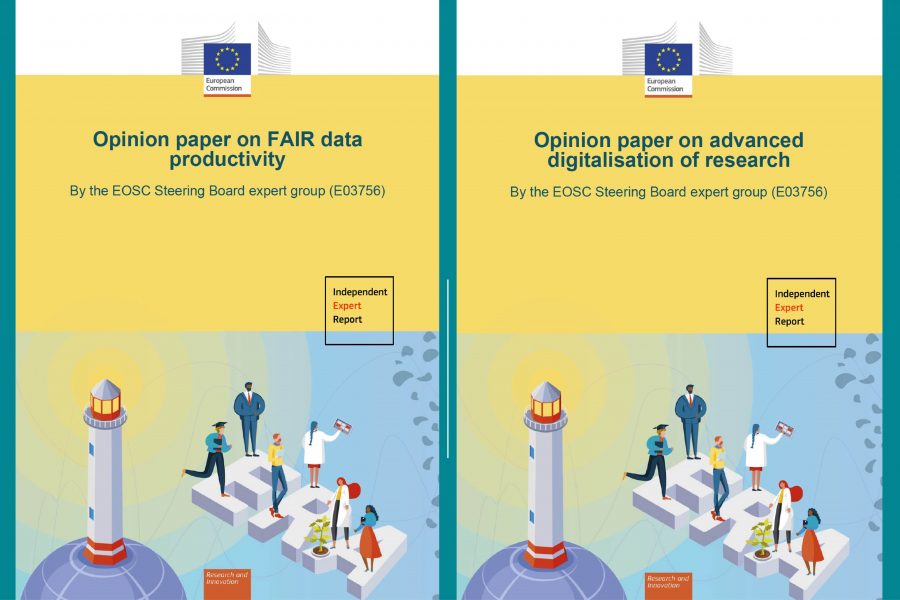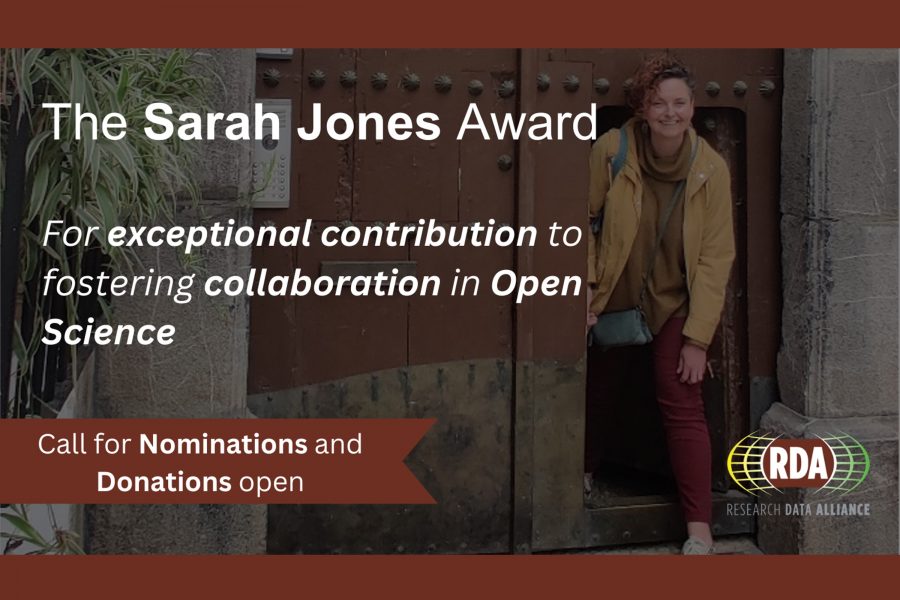This interview is part of a series coordinated by the EOSC Focus project. The interviews aim to highlight the role of the EOSC Association’s Mandated Organisations. By bringing their activities and insights to the forefront, the EOSC Focus interviews will help to reinforce the connections between each country’s Mandated Organisation and its EOSC Association Member and Observer organisations, as well as to make visible the work going into the implementation of EOSC at the national and institutional levels.
Miguel Rey Mazón (TU Graz) and Isabel Caetano (EOSC Association) interviewed Ivan Marić, Director of the University of Zagreb University Computing Centre (SRCE), about the decades-long efforts of the scientific and academic community in Croatia that have culminated in the launching of the Croatian Open Science Cloud Initiative three years ago. He also analysed the impact of the emerging national Open Science policies on practices of researchers, and detailed activities that SRCE implements to facilitate open research.
The University of Zagreb University Computing Centre is the EOSC-A Mandated Organisation for Croatia. What is SRCE’s role in Open Science and how does your strategy contribute to the creation and development of EOSC?
Established in 1971, the University of Zagreb University Computing Centre (SRCE) is Croatia’s national provider of digital resources and services for academic and research performing organisations. Our offerings include a stack of national services for the preservation and sharing of research results, which enable Open Science practices. We also play a key role in building digital bridges with Europe through initiatives like for example the European Grid Initiative (EGI), Authentication and Authorisation Infrastructure (AAI) – eduGAIN, the European High Performance Computing Joint Undertaking (EuroHPC JU), or CroRIS – EuroCRIS.
Modern science and education call for advanced and reliable e-infrastructures and digital services. In this context, an important achievement on the national level is the establishment of the Croatian Scientific and Educational Cloud, or HR-ZOO. It was made available to users in 2023, advancing the SRCE service portfolio.
In 2021 we started the national Open Science Cloud Initiative, HR-OOZ, led by SRCE, building on previous informal and formal cooperation to implement Open Science in Croatia, and also on initiatives like the NI4OS project. HR-OOZ currently comprises 21 organisations, including the Ministry of Science and Education (MZO), the Croatian Science Foundation (HRZZ), all public universities, major service providers, European Research Infrastructure Consortia (ERICs) and other research infrastructures from Croatia that are on the roadmap of the European Strategy Forum on Research Infrastructures (ESFRI). We follow a bottom-up approach towards Croatian institutions, combined with a top-down model mandated by the Ministry.
Thanks to its experience, SRCE was best positioned to become the EOSC-A Mandated Organisation for Croatia. The bi-directional role foreseen for Mandated Organisations fits well with SRCE’s mission. We are constantly in communication with our stakeholders and inform them about the discussions at the European level.
You have mentioned that in your role as the coordinator of the Croatian Open Science Cloud Initiative, you combine different approaches to create the EOSC ecosystem. Could you share some examples with us?
SRCE relies on institutional and university liaisons that act as bridges between SRCE and the communities. We employ the B2B model and coordinate our activities with other institutional partners to build services. For example, we collaborate with appointed repository managers on the catch-all repository system DABAR (Digital Academic Archives and Repositories), one of the first in Europe. It hosts more than 170 institutional and thematic repositories.
On 19 April 2024 we held our second National Tripartite Event (NTE) back-to-back with our SRCE conference called Days of e-Infrastructure (DEI 2024). Other communication channels that we use are trainings, discussions at SRCE, and the so-called SRCE café, an informal online meeting every other week to discuss topics like EOSC, data or Open Access. In addition, many members of the HR-OOZ Initiative hold their own events to promote the principles of Open Science.
SRCE has a long experience with organising educational activities. Could you evaluate progress in this area?
SRCE has been organising trainings, which represent around 20% of our activities, since its establishment as the centre for computing back in the 1970’s. Our educational material spans the implementation of digital technologies in learning process and huge Learning Management Systems (LMS). We also host a centre for e-learning to help students, teachers, and researchers use digital technologies. We cover over 30 000 e-courses for more than 100 institutions of higher education in Croatia, with around 100 000 students. The same training platform is used to train researchers in open research, research data management, clustering and supercomputing.
How do you engage national stakeholders in the discussions on the future of EOSC, especially the nodes? How do you inform on your decisions and your participation at the European level?
I report all meetings to the Ministry of Science and Education, indicating the conclusions and actions that should be taken. The reports and other decisions from the EOSC Steering Board are shared with the community through the HR-OOZ Council, and we also collect their opinions through surveys. Another channel that we use is the quarterly SRCE magazine, in which we present the latest EOSC developments. We often reach out to the leaders of Open Science teams to sound the community.
Could you describe the progress and challenges with the implementation of Open Science and EOSC in Croatia?
In Croatia we lack a national Open Science policy. A draft was prepared in 2023, but it has not been adopted by the Ministry. Unfortunately, 2024 is an election year, so things will probably not move at the speed we would like. The Open Science policy remains one of our priorities.
We also lack a national strategic plan on data infrastructures. The plan, a proposal of which was sent to the Ministry, should also aim to make the most out of the new supercomputer brought last year through a national data infrastructure project that aims to develop human capital.
A partnership framework agreement, which was recently signed between the Ministry and all public research institutes requires them to implement Open Science. By the end of the year, the Ministry will start a similar agreement with public universities that will set the funding for the next four years. This agreement considers Open Science skills, incentives to adopt Open Science, and Open Access to publications.
Could you tell us how are funds from the European Regional Development Fund (ERDF) used for EOSC?
We received significant funding from the EU Recovery Funds, but now is the time to negotiate access to the ERDF. There is enough excellent science in Croatia to achieve a good deal, but we need to shape it into a coherent project. We invited colleagues from Slovenia to the 2nd NTE to present their national project, exchange ideas, and help our community advance towards Open Science.
How could Croatia’s strengths support the development of EOSC?
Our main strength is high awareness and a long history of Open Science practices in several key institutions. We started with a few isolated islands and now Open Access and FAIR data are common topics in all scientific communities.
The introduction of mandatory Data Management Plans (DMPs) by the HRZZ in research projects they fund has had a huge impact. DMPs must be openly published on DABAR. Since July 2023, HRZZ also mandates beneficiaries to record all project results in the national CRIS system – CroRIS, publish open access, and deposit research data in FAIR repositories. Both DABAR and CroRIS are operated by SRCE. The experience we have gained can be transferred to services in EOSC.
We are figuring out how to provide the services researchers demand. It is important that we talk to the key stakeholders in our country. In HR-OOZ, we do not leave weaker members of the community behind. We need to find the proper “glue” to connect all initiatives.
Could you elaborate on strategies to address the evolving needs of researchers and other national stakeholders?
SRCE and I personally were involved in building a “digital compass” for Croatia that serves not only research and academic communities but also the public sector and industry. In a recent meeting with the Croatian Institute of Public Health (HZJZ), we agreed to collaborate on building a national health data space. We need to improve digital skills and competences. If we don’t train data stewards, researchers will see all data-related tasks as extra work.
How many data stewards do you need? Are there national programmes to train more people?
How many data stewards are needed is roughly set by the number of researchers in the country (around 10,000), the number of research institutes (around 25) and public universities (10). We need around 40-50 data stewards to start with.
Croatia should establish data competence centres in different scientific disciplines to coordinate the work on data-related topics in those areas. Around 6-10 million euros in the next five years would be sufficient for Croatia to deal with the initial Data Competence Centres creation and staffing problems.
The major impact of EOSC on Croatia has been in raising the awareness of scientists about Open Science and the sharing of research data. Open research has not yet become a universal norm in the research community despite all efforts. We must show them the benefits of Open Science, in particular multidisciplinary success stories. They prove that several disciplines can benefit if one of them opens up.
In your view, what does the future for EOSC look like?
I don’t know what the future brings, but the rock is rolling and there is no turning back. I’m sure that the need for structured research data and related services will keep increasing. Rich metadata descriptions, standardisation and interoperability should be extended to all data spaces.
EOSC will succeed only if it connects plenty of useful services and data sources. This requires the EU Member States to stay involved in EOSC. In the end, it is the Member States that fund public research. It is also very important to strengthen the link between e-infrastructures and data spaces, following a tri-partite model: institutional, national, and pan-European.
However, the key to the success of EOSC is an active research community. All others should offer assistance, listen to their needs and provide solutions. As I said at the beginning, the process is in motion, it is agile, and we all should adapt our plans accordingly.
About University of Zagreb University Computing Centre
The University of Zagreb University Computing Centre (SRCE) is a central infrastructure institution that plans, develops, and improves e-infrastructure and digital services for the needs of the academic and scientific community in Croatia and provides support in their usage. It was founded in 1971 within the University of Zagreb, the only Croatian university at the time, with the purpose to enhance the implementation of information technologies in the academic community as well as in Croatia in general. SRCE is an active member of several pan-European e-infrastructures connecting Croatia with the European Research Area.
Read more about SRCE
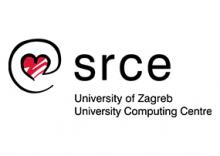
About Ivan Marić
Ivan Marić is the Director of University of Zagreb University Computing Centre (SRCE). He played an important role in the creation and construction of the Croatian academic and research network at the beginning of the 1990’s and has since then participated in numerous national initiatives aiming to build a Croatian e-infrastructure. Ivan Marić holds several positions in international organisations as the national representative for Croatia. He is the Croatian delegate to the EOSC Steering Board and the EOSC-A General Assembly.
